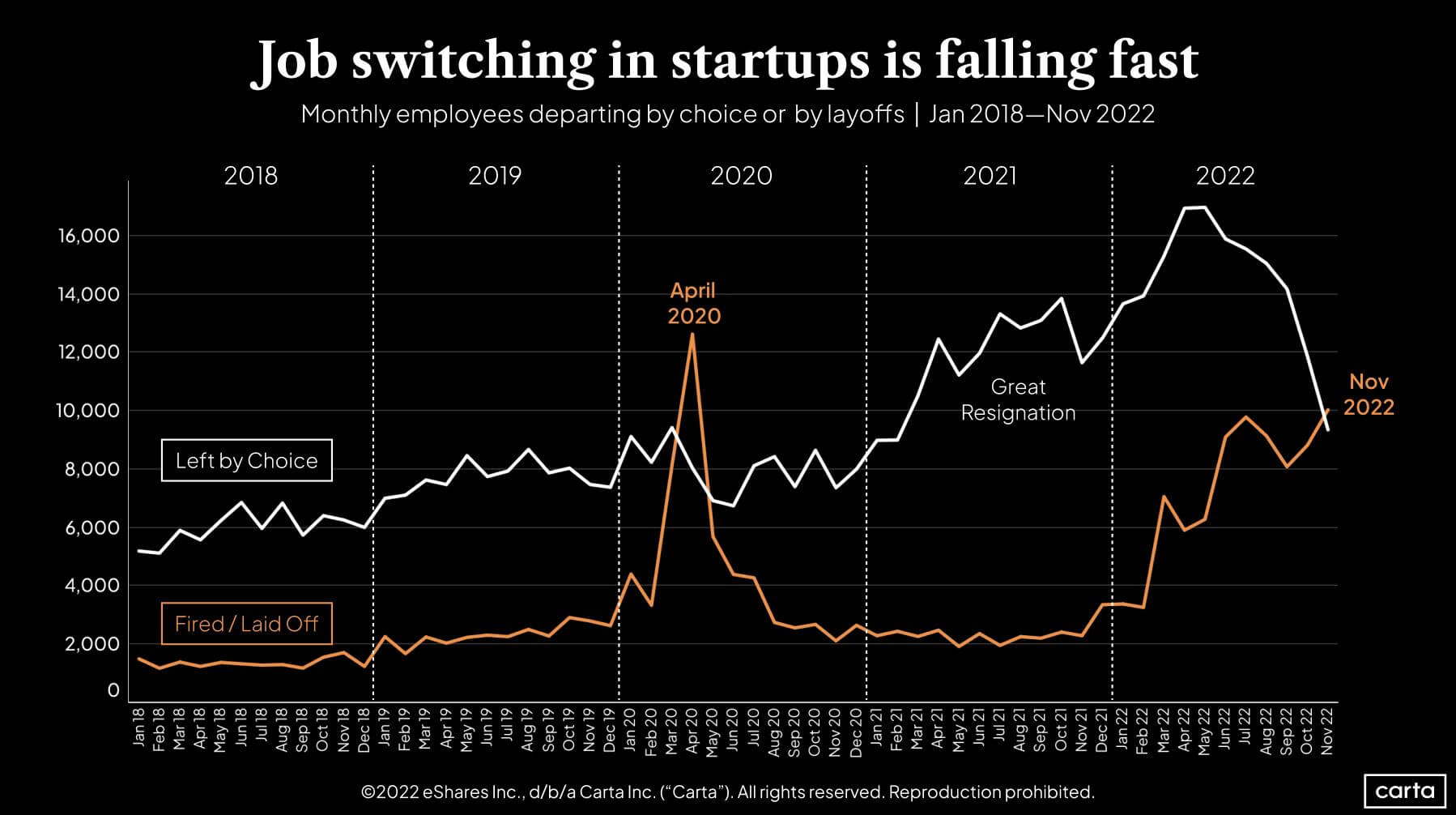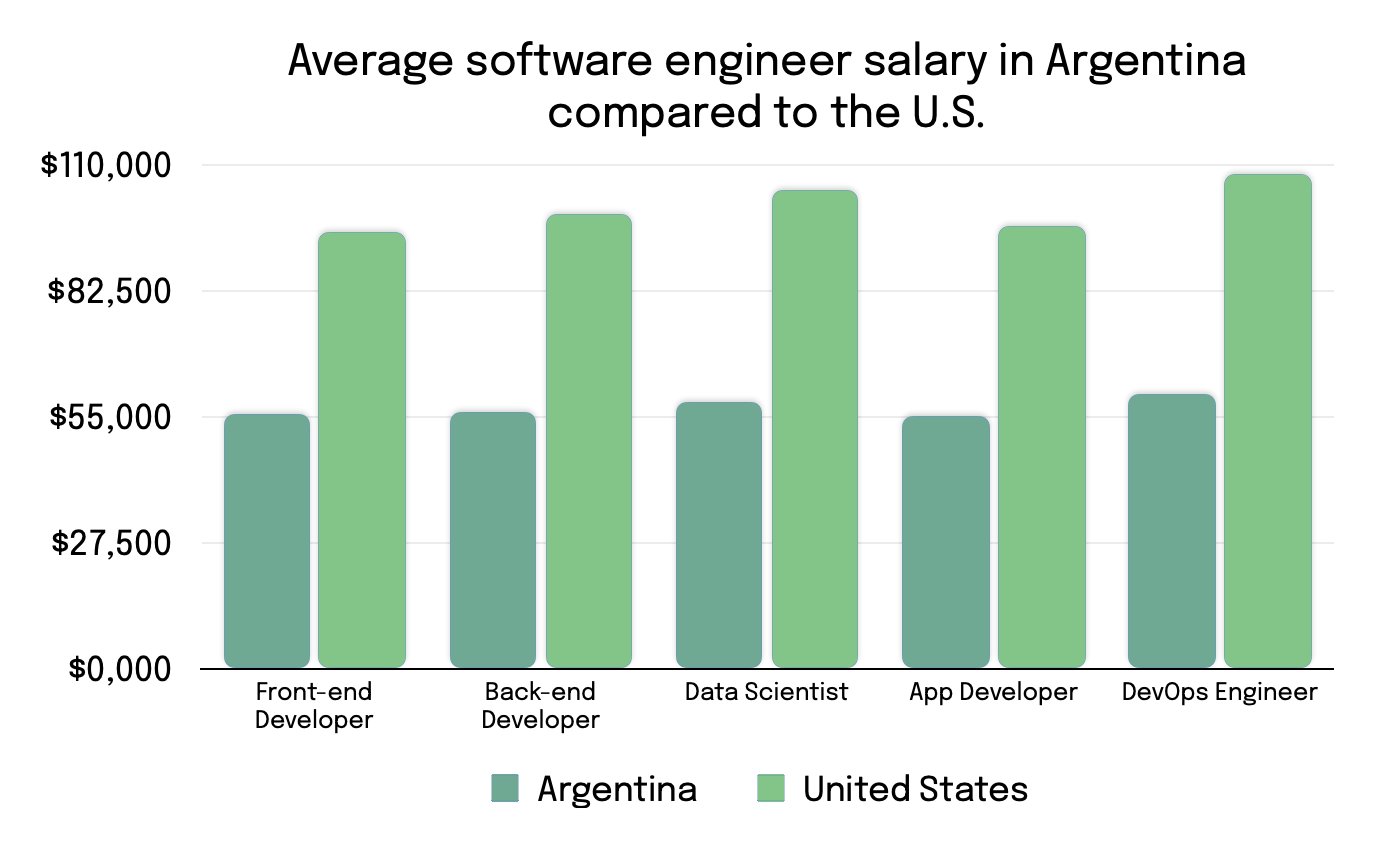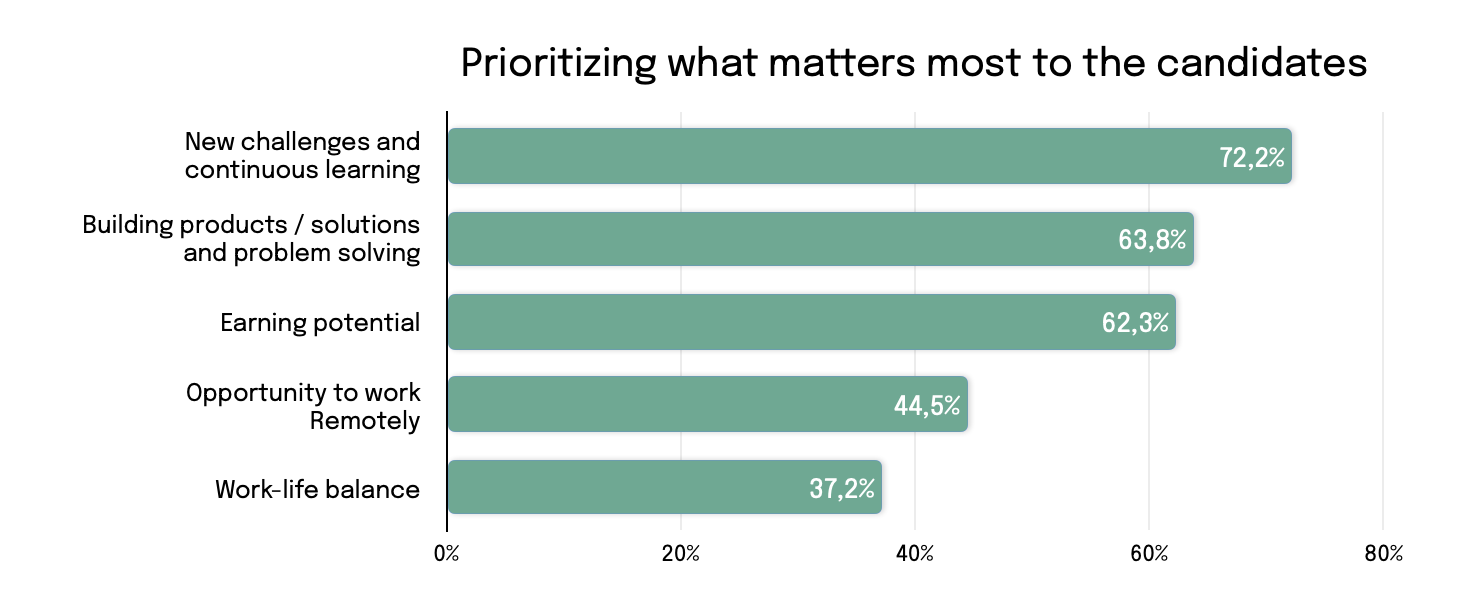We are pleased to publish the text version of the webinar “Trends in remote global hiring for 2023,” which was held on December 22, 2022.
Our speaker is Weiting Liu, founder and CEO of Arc.dev, a platform for hiring remote software engineers. Prior to creating Arc, he founded Codementor, a community for developer mentorship where engineers can get advice or a consultation from real gurus. Weiting is a two-time YCombinator and Techstars alumnus and holds a Master’s degree in Management Science and Engineering from Stanford University.
In this webinar, Weiting talks about the top five trends in remote hiring and why these trends are important for engineering leaders, as well as what companies can do right now to improve their hiring strategies in 2023.
Featured speaker: Weiting Liu, founder and CEO of Arc
Moderator: Yura Riphyak, co-founder and CEO of YouTeam
Table of Contents
Trends in Remote Global Hiring for 2023
Yura:
Welcome, Weiting. It’s great to have you as our speaker. Let’s talk about remote hiring trends for the upcoming year so employers looking to attract the best talent can take advantage of them.
Weiting:
I would start with a little historical overview of what has happened in the developer market over the past two years. In 2020, the entire industry was hit by COVID, but in 2021 things quickly changed with a post-COVID hiring surge. The labor market turned into a candidate market, and the Great Resignation began. Then, in Q2 2022, mass layoffs began in tech companies. Now, in Q4 2022, it’s a tale of two stories — layoffs continue to happen, but in the grand scheme of things, tech hiring remains relatively steady.
Trend 1: Tech Layoffs and the Great Resignation
Despite the number of resignations and the number of layoffs, on a macro level, there’s still a big gap between job openings and talent availability. There is still a talent shortage for the number of job opportunities available, and the logical question is, with the recent layoffs, “Are we still in a candidate market?” According to the graph shared by Carta, it seems that the pendulum has begun to swing back from an extremely candidate-friendly market to a slightly more employer-friendly market.


However, whether it’s a candidate market or an employer market, it’s not always evenly distributed and depends on the position type, industry, and geography of candidates.
With all the layoffs that have happened (and we expect this to continue into Q1 2023), companies and HR professionals are enthusiastic about helping affected talent get new opportunities. They use LinkedIn and sites like layoffs.fyi to source new hires.
In addition, the scope of the Great Resignation has certainly diminished from its peak, but tech talent has always been picky. Choosing the right employer branding strategy to stand out is another topic I will discuss later today.
Trend 2: Software Engineer Salaries in the U.S. Are on the Rise
According to the U.S. Bureau of Labor Statistics, the average salary in the country will increase by 26 percent by 2030. Moreover, if you are looking to hire in Northern California or any other major tech region, these numbers will be much higher than average. This means that the U.S. still has a shortage of engineers domestically. However, if you start looking at the global market, the salaries will be lower compared to the U.S.
At Arc, we created the Remote Salary Explorer, an interactive tool that shows how much developers earn based on self-reported data. For example, in Argentina, we have about 40-50 percent lower salaries compared to the U.S.
In fact, Arc works with a lot of forward-thinking companies in the U.S., Europe, and Australia to help them find great developers who don’t reside in their country but are just as good and cost much less.
Most companies that hire remote workers now practice compensation based on the local market
Another brief remark is about the debate around global pay versus local pay. When remote work first started, there was a discussion about whether companies should pay their workers at a global standardized rate or adjust their compensation based on the local market. The founder of Deel recently commented that this debate has settled down somewhat, and the power of balance regarding this topic has returned to employers. Deel’s data showed that most companies that hire remote workers now practice compensation based on the local market.


Trend 3: The Rise of Global HR Tech
The last two years have been the most prosperous in terms of global HR tech VC investments. The most popular HR technologies this year were ATS (applicant tracking system) and job aggregator sourcing tools.
You might be surprised, but 10 years ago, ATS simply did not exist. Today, these kinds of tools have become standard for startups and growing companies to help them optimize their candidate funnel. So I would encourage you to think about how you can improve your hiring and stay ahead of the competition with HR technology. Many of these tools have a free trial, so test them out to find the one that best suits your needs.
Trend 4: Prioritizing What Matters Most to the Candidates
Candidates in different geographies have slightly different priorities. For example, a recent Hired survey found that developers in the U.S. care most about new challenges and continuous learning, as well as building product solutions and solving problems. However, another survey Arc conducted for the Latin American market shows that candidates are looking for flexible working hours, and for many, it is also important to find a job that pays in U.S. dollars.
Developers in the U.S. care most about new challenges and continuous learning, as well as building product solutions and solving problems
Companies should consider what is most valuable to candidates in different markets. You can share your salaries, benefits, and learning opportunities on your career page or in the job description. You can also explain your company’s culture and core values. Add this information to company profiles and also attend job fairs to communicate all the benefits directly to candidates. Not only will this shorten the hiring lifecycle, but it will also attract the right candidates who resonate with your company’s values.


Trend 5: Diversity, Equity, and Inclusion
According to Gallup’s 2022 Workplace Report, 40% of candidates seek diversity and inclusion when they are considering a job change, so they may avoid job openings at companies with poor DEI support. Therefore, companies will be able to attract more diverse talent if they limit their bias in the interview process and job descriptions or partner with a community focused on underrepresented groups, such as women in tech.
Finally, remote global hiring is also a great way to diversify your talent pool. This is what Arc is doing right now — we have a team of about 60 people from all over the world, and we make sure that people of various backgrounds feel welcome.
Recap: Key Takeaways from Five Remote Hiring Trends
- The pendulum is starting to swing back to an employer-friendly market
- Engineering salaries in the U.S. will continue to rise
- HR technologies are evolving to help employers optimize the candidate funnel
- Companies identify priorities that are most important for candidates based on their geography
- Candidates are choosing companies with strong DEI support
What Companies That Succeeded in Hiring Did in 2022 That You Can Do Right Now
- Look for talent globally and leverage remote contractor roles
By hiring remote workers, you can access a much wider pool of engineers, save costs with lower salaries and rates, and enjoy a greater diversity of talent. Adding contractors to your workflow with the help of companies like YouTeam or Arc can help you flexibly configure your engineering resources as if it were an EC2 instance (a virtual server in Amazon’s Elastic Compute Cloud that provides scalable computing capacity – editor’s note).
- Be transparent about your compensation, benefits, culture, and hiring process
As an employer, I used to have doubts about the transparency of compensation, benefits, and perks in our public job descriptions. However, these are the things that attract developers the most, at least according to our surveys at Arc.
- Focus on what matters most to candidates: Flexible work schedule and learning opportunities
You should be aware of what the best developers in a particular location are looking for in employers and adjust your hiring strategy to those expectations. According to recent studies, most engineers value flexible working hours and learning opportunities, but this may vary depending on the location.
Case Studies
Let’s talk about case studies of how well-known companies have achieved success in hiring. For example, Buffer disclosed their salaries, benefits, culture, and pay gaps on their website. After they did this, they started receiving twice as many applications for open positions.
Doist, one of the pioneers in the field of remote work, has allowed employees to work from anywhere, anytime. Their employees also receive a stipend to enhance their professional skills and have a non-negotiable compensation package depending on where they live.
Gem uses a candidate engagement product called Guide to control its visibility to candidates and uses an in-house product to track the candidate pipeline.
Help Scout has a dedicated DEI website, and they are active advocates for diversity and inclusion.
And one final shameless plug: if you are considering remote hiring, Arc is a platform that makes it easy for you to hire remote developers worldwide. If you become our client, you will be presented with a short list of matching developers. You can also create a company profile to get access to great developers in Latin America, Europe, Canada, and Asia and host regular public job fairs where you can connect directly with candidates and promote your employer brand.
Yura:
That was a great presentation. Thank you, Weiting. I certainly learned a lot and took a bunch of notes, so I’ll use the privilege of the moderator and ask my questions first, and then we’ll take questions from the audience.
Browse 500+ Dev Teams Available for Hire
Q&A Session
How to Validate Offshore Developers If You Are New to Remote Hiring
Yura:
As you know, there are many companies that are just starting to hire people from other countries. It’s still uncharted territory for them. I’ve heard that one of the challenges is that when a company hires someone abroad, they can’t rely on the usual candidate vetting mechanisms that they use in their own country. For example, I know that this university is good or this particular program at the university can be trusted. I may even have a personal network to get independent recommendations or advice.
But when a company starts hiring from a new country, all of these channels are not available, so how can it narrow the candidate funnel and mitigate risks, especially in the early stages of the hiring process?
Weiting:
After you make your first hire, you’ll start training your muscles to better evaluate candidates from different markets. For example, when you hire engineers from Latin America, you see from their resumes that they have a lot of experience working for outsourcing companies. We’ve heard founders say, “All these developers are great, but we prefer to hire professionals who have experience building products directly in companies.” What they didn’t realize, however, was that many of these engineers actually have hands-on experience building products for other companies. They just do it indirectly by working at the agency.
For first-time hires, the fastest way, which we always recommend, is to work with experienced partners like Arc or YouTeam. And when you start to get the hang of it (remote hiring), you can build an entire offshore engineering team.
Yura:
As far as I’m aware, one way to compensate for this experience gap is to use indirect employer branding. That engineer might be directly employed by some development shop you’ve never heard of, but that particular development shop with that team of engineers might have made a product for Microsoft, Nike, or Airbnb. That would be a powerful signal to you that the agency can be trusted, and there are quite a number of such teams.
Weiting:
When you are hiring within the United States, there is a high chance that you will see familiar names of universities and companies on candidates’ resumes. You may even be able to find common connections with the candidate on LinkedIn.
But if you start expanding your search to the global market, suddenly, there are all these unknown brand names on candidates’ resumes. For example, I don’t know what the best schools or great software companies are in Spain. So it might be better to work with local or global hiring partners who can help you with references.
How to Compete with Major Tech Companies for the Best Engineering Talent
Yura:
Okay, one more question from me. I really like your advice about the transparency of the compensation package, benefits, and core values that companies should disclose on their websites and in job descriptions. However, transparency may not be enough to attract the best engineers if you are a relatively small company.
In the U.S., 80% of businesses are not in the Fortune 500 and do not appear in the TechCrunch 500 rankings. Most people have probably never heard of them because they are still developing their employer brand. What advice would you give to companies who want to take advantage of remote hiring, who are willing to take risks, but want to attract really great candidates and not get lost in the competition with bigger brands? Do you know any tips or techniques on how to stand out?
Weiting:
That’s a good question. Unless you are ready to pay developers a first-class Google-level salary, it would be great to provide generous equity offers. However, offshore engineers may not value equity as much as U.S. candidates.
So I advise companies to think about what might encourage a talented employee to join them. I’m sure founders are always excited and passionate about the mission and vision of their companies.
There has to be something special about your business — a great product, challenges that engineers can work on, and other strong reasons to compete for the best engineering talent
Early-stage startups should sell themselves to talent the same way they sell their companies to investors. There has to be something special about your business — a great product, challenges that engineers can work on, and other strong reasons, so try to present those advantages as early as possible.
Yura:
So don’t be afraid to make a statement about your company when introducing it to candidates. The better the candidate, the more alternatives they have, and the more effort should be made to attract them.
Weiting:
Yes, I have indeed met quite a few great founders who have exceptional charisma, and they speak passionately about the company’s vision. I’m sure that during their one-on-one meetings with a candidate, the likelihood of attracting an engineer is very high.
Now imagine if you could bring their vision to a career page or job description, making those pages just as attractive as the founders themselves during a private one-on-one session. That would only help you expand your candidate funnel.
Yura:
That’s a good point, and it resonates with what we talked about a week ago with Max Kolysh of Dover. He’s also a two-time YC alumnus, and he said that if it’s a small company, the CEO should make the first call to the candidate because that’s the first impression. In fact, the CEO’s main job is to make a solid first impression of the company by talking to all the stakeholders and counterparts. In addition, they can delegate this to other people.
Will Companies in the U.S. Bring Employees Back to Their Offices?
Yura:
Okay, we have some questions in the live chat. Since the coronavirus is almost a thing of the past, do you think more companies in the U.S. will bring employees back to their offices? How will this affect the hiring of offshore developers?
Weiting:
I think it depends on the preferences of managers and CEOs. If you’re as big as Google or Apple, and you’ve already invested hundreds of millions of dollars in physical infrastructure, you’re already fully committed to an office culture. Of course, you want your employees to come back.
However, a lot of remote-first companies have emerged in the last two years, and I’m sure remote work will become more mainstream in the future. Such businesses are becoming successful, like GitLab, which was the first remote company to go public.
As for working remotely vs. on-site, I think the arguments about which is better will end. It’s every company’s personal choice, just as we choose whether to dine at a restaurant or buy groceries and cook at home. I think that’s quite an appropriate analogy. Both options are valid, and sometimes the same person or the same company prefers both.
Yura:
Interestingly, this resonates with the previous question. Working remotely is also a benefit. People like more flexibility and more control over their time. After all, our understanding of what makes people happy is often flawed. For example, achieving more wealth and buying expensive things usually don’t make us much happier, at least in the long run.
What makes us happy though, is when we take the disturbances out of our lives. For example, commuting to work makes people unhappy — it’s a scientific fact. Having less control over one’s schedule, tasks, and time also makes people unhappy.
So if you’re an employer on the hunt for top talent and you’re not Fortune 500, remote work and flexible hours can be a major advantage.
Weiting:
I want to add that if you don’t allow remote work, there will be candidates that you will miss out on. A significant percentage of developers prefer companies with remote work policies, so maybe you should play up the market a little bit. Unless you’re Elon Musk, who is so cool that he can just ignore that fact and attract the talent he wants.
What Do Companies Pay Attention to When Hiring Developers from Other Countries?
Yura:
Okay, we have another question. When companies in the U.S. hire developers from other countries, what do they focus on besides English proficiency? What could be a stumbling block to hiring other than a time zone mismatch?
Weiting:
I believe these two factors (English proficiency and time zone overlap) are probably the most critical. Also, if the candidate has no experience in remote work, they can sometimes be stressed out during an interview in a non-native language. In addition to their English skills, they need to have communication skills and understand the typical interview process in American companies.
How to Deal with Management’s Skepticism about Remote Hiring
Yura:
We have one last question, and it has to do with skeptics of remote hiring. How do you convince a company’s management to consider hiring overseas if they are against remote hiring in general? Most companies still prefer to hire local developers.
Weiting:
First, in addition to YouTeam and Arc, there are other companies, such as Deel or Remote.com, that allow businesses to hire remotely with legal compliance and secure payments.
Second, my recommendation is to move toward remote hiring gradually. Sometimes the first step is when a team member moves overseas or to another city, or when an organization hires a remote employee for a non-critical or part-time role.
Then, if management has a positive experience with offshore developers, it can increase the scope of remote hiring.
I understand where the skepticism comes from — usually, people are against remote hiring because they’ve had bad experiences or it’s something they’ve never done before, hence the fear.
On Cultural Diversity
Weiting:
The whole beauty of working remotely is that you’re working with people from other cultures who are completely different from the ones you’re used to.
Yura:
You know, living in places like California, you notice how the mixture of different cultures brings a lot of benefits and a lot of development, because each culture has a distinctive way of looking at things. When you have people from various backgrounds with different experiences on your team, they look at the same problem in different ways. Think about how many discoveries you can potentially make with a team like that!
Well, it was great listening to your presentation, Weiting. That hour flew by unnoticed. I know you’re waking up early, and thank you so much for being with us at this early hour in Taiwan.
Weiting:
Thank you, I really enjoyed speaking with you and other people from the online audience. Thank you for inviting me!
Additional Resources
- Layoffs.fyi – Tech layoffs tracker and list of laid-off employees
- Rate of job openings, quits, and layoffs out of all employment – Vox article; Source of data: Bureau of Labor Statistics
- Job switching in startups: Monthly employees departing by choice vs by layoffs – Infographics by Carta
- Remote Developer Salary Explorer – Interactive tool from Arc
- YouTeam vs Arc vs Turing: Choosing the best platform for hiring contractors – YouTeam blog
- 2022 State of software engineers – Hired report






